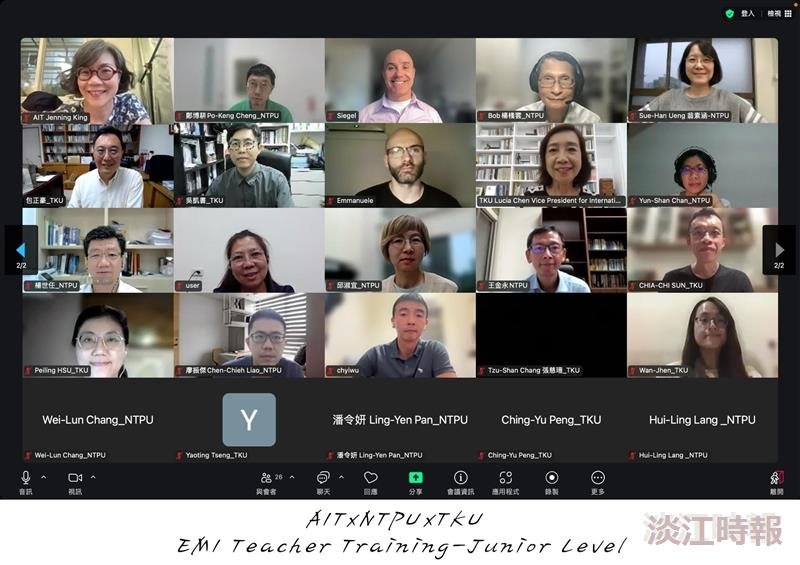
Secretary of State Marco Rubio said Wednesday the U.S. will begin revoking the visas of some Chinese students, “including those with connections to the Chinese Communist Party or studying in critical fields.”
Rubio said in his announcement posted on X that the government will “aggressively” revoke visas for students from China, which is the second-largest country of origin for international students in the United States, behind only India. In the 2023-2024 school year, more than 270,000 international students were from China, making up roughly a quarter of all foreign students in the United States.
On Tuesday, Rubio halted the scheduling of new visa interviews for international students as the department prepares guidelines for increased vetting of their activity on social media. The announcements from the State Department added to uncertainty for America’s international students, who have faced intensifying scrutiny from President Donald Trump’s administration.
University of Wisconsin-Oshkosh student Vladyslav Plyaka was planning to visit Poland to see his mother and renew his visa, but he doesn’t know when that will be possible now that visa appointments are suspended. He also doesn’t feel safe leaving the U.S. even when appointments resume.
“I don’t think I have enough trust in the system at this point,” said Plyaka, who came to the U.S. from Ukraine as an exchange student in high school and stayed for college.
The announcement came days after the Trump administration moved to block Harvard University from enrolling any international students, a decision that has been put on hold by a federal judge, pending a lawsuit.
Trump said Wednesday that Harvard, whose current student population is made up of more than a quarter of international students, should limit that percentage to about 15%.
“I want to make sure the foreign students are people that can love our country,” Trump told reporters in the Oval Office.
Earlier this year, U.S. Immigration and Customs Enforcement arrested and tried to deport students who had been involved in campus protests against the Israel-Hamas war. And the Trump administration abruptly terminated the legal status of thousands of international students before reversing itself and then expanding the grounds on which students can lose permission to study in the U.S.
International students see new reason for caution
The uncertainty raised by the suspension of visa appointments will do further damage to the U.S. reputation as a destination country, said Fanta Aw, CEO of NAFSA, an association that represents international educators. Students generally commit to their program of study in late spring, meaning now would be peak time for students to schedule their visa interviews.
“International students and scholars are tremendous assets that contribute to U.S. preeminence in innovation, research, and economic strength,” Aw said in a statement. “Undermining their ability to study here is self-defeating.”
At the University of Wisconsin-Madison, the climate of uncertainty led one international student to cancel a trip home to Vietnam this summer. He emails the school’s international office frequently to make sure his legal status is secure.
“There’s just this constant unease. It’s quite stressful, really,” said the student, who spoke on condition of anonymity out of fear of being targeted.
The pause affects three categories of visas that cover university students, as well as high school exchange students and boarding school students. The largest category, F-1 visas, includes students who are enrolling at full-time accredited schools. Students participating in exchange programs enter on J-1 visas, and those enrolling in vocational or non-academic programs enter on M-1 visas.
Around 1.1 million international students were in the United States last year — a source of essential revenue for tuition-driven colleges. International students are not eligible for federal financial aid. Often, they pay full price.
Northeastern University, which has more than 20,000 international students, has set up “contingency plans” for those who hit visa delays, said spokesperson Renata Nyul, without elaborating.
“This is a very dynamic situation, and we are closely monitoring the developments in real time to assess any potential impacts,” she said.
The US plans more in-depth reviews of visa applicants’ social media
Visa applicants have been required to provide social media handles to the State Department since 2019. The cable did not indicate what kind of additional scrutiny the new guidelines would cover, but suggested the new reviews may be more resource-intensive.
The additional vetting will deter students from coming to the U.S., said Jonathan Friedman of PEN America, a literary and free expression organization.
“The details remain vague, but this policy risks upending the long-standing place of the U.S. as a beacon for intellectual and cultural exchange with the world,” Friedman said.
The move to cut off international enrollment at Harvard stems from a dispute with the Department of Homeland Security, which has demanded that it provide information about foreign students that might implicate them in violence or protests that could lead to their deportation. Harvard says it complied with the records request, but the agency said its response fell short.
On Wednesday, Trump said more scrutiny of Harvard’s students is necessary.
“They’re taking people from areas of the world that are very radicalized, and we don’t want them making trouble in our country,” Trump said.
The Trump administration has cut over $2.6 billion in federal grants for Harvard as it presses demands for changes to policies and governance at the Ivy League school, which the president has described as a hotbed of liberalism and antisemitism. Harvard has pushed back and filed a lawsuit against the administration.
Download the FREE WPXI News app for breaking news alerts.
Follow Channel 11 News on Facebook and Twitter. | Watch WPXI NOW

